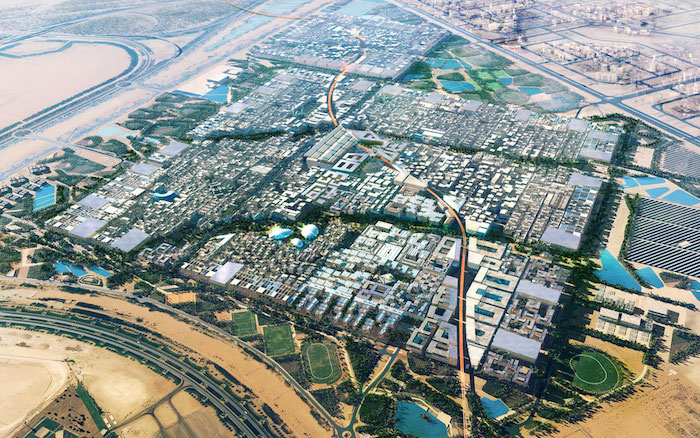Energy consumption per capita in the oil rich Arabian Gulf nations is among the highest in the world. World Bank energy consumption data shows 4 Gulf countries in the top 6 consumers (per capita) globally. These progressive Arab nations are keen to address such statistics by tackling their root causes, namely inefficiency.
The World Bank data for global energy consumption by country, list’s Qatar third highest using 14911.1 kg of oil equivalent per capita, Kuwait in forth using 11402.1 per capita, the UAE in fifth with 8588 and Bahrain in sixth with 8096.3. The UK, in contrast, sits in 41st position using just 3183.3 kg of oil equivalent per capita.
The per capita statistic does emphasize nations with small affluent populations, such as those small oil rich nations of the Gulf Cooperation Council (GCC), but even compared to similar nations globally, consumption is still very high.

Beyond affluence, there are 3 primary causes behind these statistics. Summer temperatures in the region regularly reach over 50 degrees Celsius;cooling is a major influence on consumption statistics. Peak summer demand is driven by air conditioning systems both residential and commercial.
Secondly, the desert environment, as you would expect, maintains very few fresh water sources. 98.8% of potable water in the Dubai, for example, comes from the energy intensive desalination process. The absence of substantial fresh water means there is little these nations can do to avoid the inevitable power outlay.
Electricity and water co-generation facilities have become very popular in the region, allowing excess heat from the power generation process to be used for desalination purposes. Despite increasing efficiency, Mohammed El Ramahi, associate director at Masdar, the carbon neutral city and green tech mecca in the UAE, feels more needs to be done to create a greener desalination process.
“Abu Dhabi has the world’s second highest carbon dioxide emissions per capita per day, and 52% of the world’s desalinated water is produced in the Gulf countries,” stated Ramahi, who then set out the emirate’s ambitious targets “Our aim is to improve energy efficiency for desalination plants and have all of them 100% powered by renewable energy in the long run.”
The third key reason for the high levels of energy consumption in the region is a culture of subsidies on fundamental utilities; water, gas and electricity. In Kuwait, the unbridled increase in demand for water and electricity are only in part a consequence of inevitable factors (such as population growth, urbanization, a falling average household size, and rising real income per head). They are also due to the artificially low consumer prices set by the government.
The Kuwaiti government provides these basic utilities at a very low cost. Historically, the price of electricity had some links with the cost of production, but this link has been broken, and rather than raising electricity prices, the government has reduced them over time. In 1953, the selling price was 27 fils/kWh but between 1953 and 1955, when oil revenues start flowing into the state’s coffers, the government decreased the selling price to 18 fils/kWh.
The electricity tariff continued on its downward trend over the years until 1966 when the government set the price at 2 fils/kWh (0.7 US cents) for ordinary consumers and 1 fils/kWh (0.35 US cents) for industrial companies, very low even by regional standards. The 1966 tariff structure is still in force today, though for chalets/villas, the price of electricity has been raised to 10 fils/kwh (3.5 US cents).
While Kuwait may offer the most extreme case, this culture of subsidies is present across the region, and from it is born an end-user culture of wastefulness. Educating the public, although beneficial, cannot compare with the energy conscience building ability of high utility prices, as many western Europeans may reluctantly admit. GCC nations are cautiously beginning to raise prices and formulate penalties for wasteful behaviour.
In the battle to reduce consumption against immovable objects such as desalination and cooling, the GCC nations’ unstoppable force is increasing energy efficiency. Smart grids are taking shape across the soon to be interconnected six country electricity grid.
The region also holds three of the world’s foremost smart city projects; Masdar City in the UAE, Lusail City in Qatar, and the King Abdullah Economic City in Saudi Arabia.
Smart building requirements are quickly becoming hard legislation for new buildings in the region, requiring a whole smart building sector to support construction during rapid urbanisation.
Government incentives also encourage the retrofitting of present buildings with smart technology, which provides not only energy efficiency but also a plethora of luxuries and gadgets popular in this part of the world.
The oil rich GCC nations are simultaneously becoming a key market for green and smart technology, and a hub for innovation in the sector. In fact the oil, or more specifically the oil exports, are another key driver of efficiency. As Suhail Al Mazroui, the UAE’s Minister of Energy explains “In order to protect our fossil fuel resources, we need to ensure that we are as efficient as possible in what we consume. We have seen important steps in this direction, especially in Dubai with its target of 30 per cent demand reduction by 2030”.
Expansion of such industries often respects a similar progression in the GCC. The UAE are the pioneers and are already leading the smart building trend, Saudi Arabia closely follows but on a much bigger scale, Qatar will not be far behind, on a smaller scale but with a great ambition for further innovation and technical excellence. Bahrain, Oman, and Kuwait would then adopt elements for their own policies.
The emigration of the smart building industry will likely follow a similar progression, with companies large and small selecting and vying for position in the one of the world’s most exciting smart building markets.



